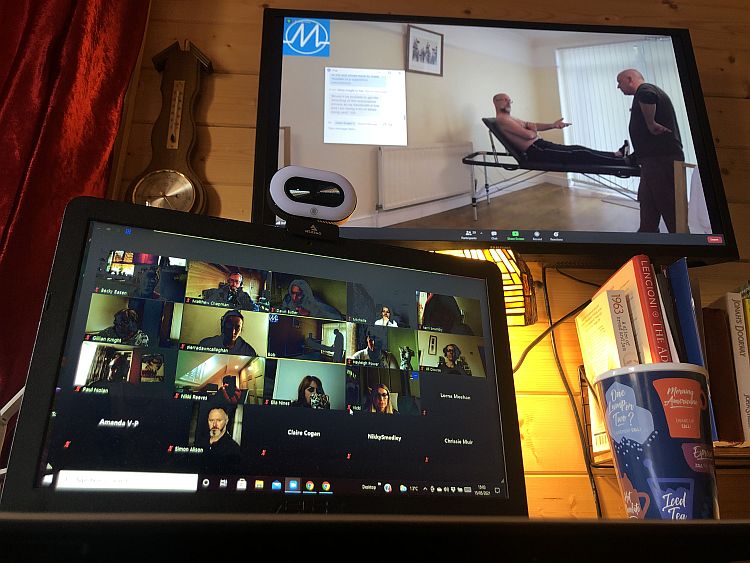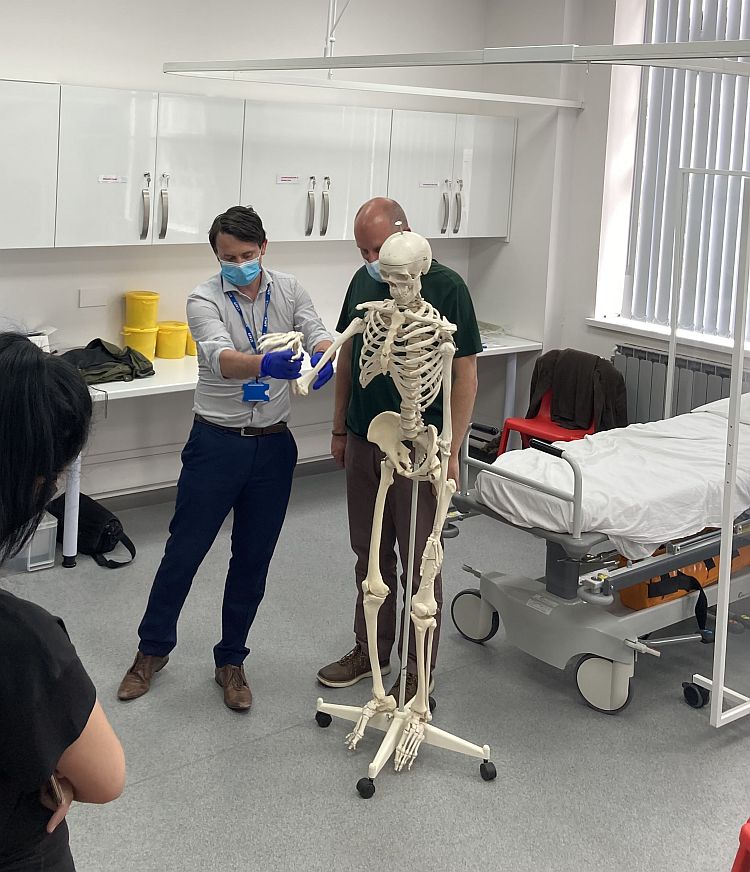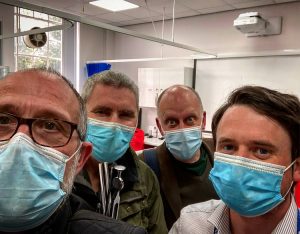
Meducate Academy recently embarked upon a continuing ACE recruitment and training programme with candidates who had expressed an interest in our ACE training schedules. We emphasised that the role we play is vital in ensuring a clinician is safe to practice with an actual patient and how much commitment is required to fulfill the role of an ACE.
Saturday 15th May 2021 was a very busy day at ‘Meducate Towers’ as we embarked upon our continuing ACE recruitment and training programme. After an initial online webinar a few weeks ago we set Saturday as the date to bring in those candidates who had expressed an interest in our ACE training schedules.
After an initial conversation, in which Mark and I outlined our background and history, we then went on to explain the role of the ACE in medical training. We went onto describe the body systems and how the student clinician would examine a patient. What then followed was a typical ACE hands-on session, with Mark playing the Physician Associate Student, and I as the ACE/simulated patient giving feedback.
This was a great opportunity for the candidates to see how much knowledge is required in order for them to fulfill their role with Meducate Academy. I think it surprised those watching just how much skill and knowledge is necessary to perform the task. Though we did explain that we have been in the role for twelve years, emphasising that this was not our expectation of them at the moment. ACE Training is an ongoing process and even Mark and I are still learning and developing our roles as ACEs.
As you can see from the heavily edited video above, Mark was playing a poorly prepared student. This was an extreme example which gave us the opportunity to show how the ACE needs to be alert when working in a situation with a below standard student.
We explained that the student does not expect us to give feedback on the students’ medical knowledge, or on their diagnosis, but on their technique when performing the examination. Of course, we would also comment on the students’ communication skills if we had any concerns.
Our role is to ensure that the student is safe to practice with a real patient and make a valuable contribution to their profession.
After the demonstration was over, we then went into an Q & A session, which included questions on the duration of training and how their assessment will be carried out. We explained that although the initial training is quite short, we will expect them to shadow an experienced ACE until we feel they are ready to take on the role. We emphasised that the part we play is vital in ensuring a clinician is safe to practice with an actual patient, and so stress was placed on the role and how much commitment is required to fulfill the role of an ACE.
Our customers are highly skilled professional educators and we expect the same high standard from our ACEs.
We are currently working on educational materials for the ACEs, and this is being done in conjunction with senior clinicians who are overseeing the development of this information. These instructional materials include training videos, handbooks and regular telephone or internet support along the way.
Meducate Academy has also been working recently with PAs at Wolverhampton and Chester Universities, and we received welcome news that many of our students had passed their National exams. Good news indeed.
Last weekend Mark and I worked with Matrix Education, again helping student Physician Associates get ready for their upcoming exams. It was great to touch base with students from every part of the UK and a pleasure to work with the team at Matrix, as always. I recently did a podcast with founder of Matrix Education Sofia Hiramatsu and we will be posting a video of the podcast next week on this blog.
I have also spent some time with Wolverhampton University developing their Golden 2 sessions on a weekday evening. If you have ever taken part in OSCEs, you’ll know that one of the vital parts of an OSCE station is the 2 minutes that the students have to read the question.
Sometimes, students find this really difficult and often miss the obvious. With this in mind, Peter Gorman of the Wolverhampton PA Program has put together sessions based purely on “how to read the question”. His approach has been really successful. Helping the student get to grips with being able to answer the question effectively, and I can’t believe someone has not attempted this before. Maybe they have!
It has been an honour to be involved in these sessions and I have seen this approach help struggling students turn a corner in their development. I intend to write something with Pete about this in the next few weeks.
The month ahead looks busy, so I would like to thank all those who attended the Webinar on Saturday. We are currently putting dates together for the initial 2 day training course.
If you are a role player who wishes to take your medical roleplay to the next level, we are always on the lookout for new people, so get in touch.



